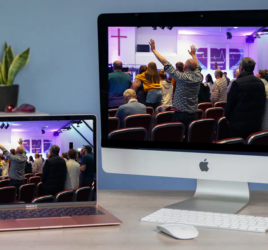By David Young
Summary:
To be a diaspora Christ-follower is a liminal experience with all of the tensions of being in-between, inherent instability, and heightened levels of stress. It’s common for such people to seek stability, or a place of cultural adjustment, for their own well-being. ICs need to understand their context—not necessarily to bring normalcy and social cohesion, which is an undeniable benefit, but primarily to bring vision and action. Why? “Movements are characterized by discontent, vision and action. Discontent unfreezes people from their commitment to the way things are. Movements emerge when people feel something needs to change. If the vacuum created by discontent is filled with a vision of a different future and action to bring change, then a movement is born.”[1] In my previous research, I’ve shown that the IC context is one of cultural dissonance and the diaspora experience is one of liminality, therefore discontent is always at hand. But with it, there is great potential for missional movement within global cites—if apostolic leaders will bring both a vision for the city and action in the form of missional communities. This essay is designed to focus an IC’s missional philosophy of ministry in four ways:
- Leverage the characteristics of globalization and urbanization to contextualize for the global urbanite;
- Identify how recent missional movements have grown out of societal vacancy and/or need;
- Embody the gospel of Christ through ministries of mercy in the public space;
- Create missional communities that embody the gospel and make disciples.
Download the paper “Missional Movement Potential of International Churches in Global Cities” here:
[1] Steve Addison, Movements That Change the World: Five Keys to Spreading the Gospel, Revised ed. (Downers Grove, IL: IVP Books, 2011), 29.



